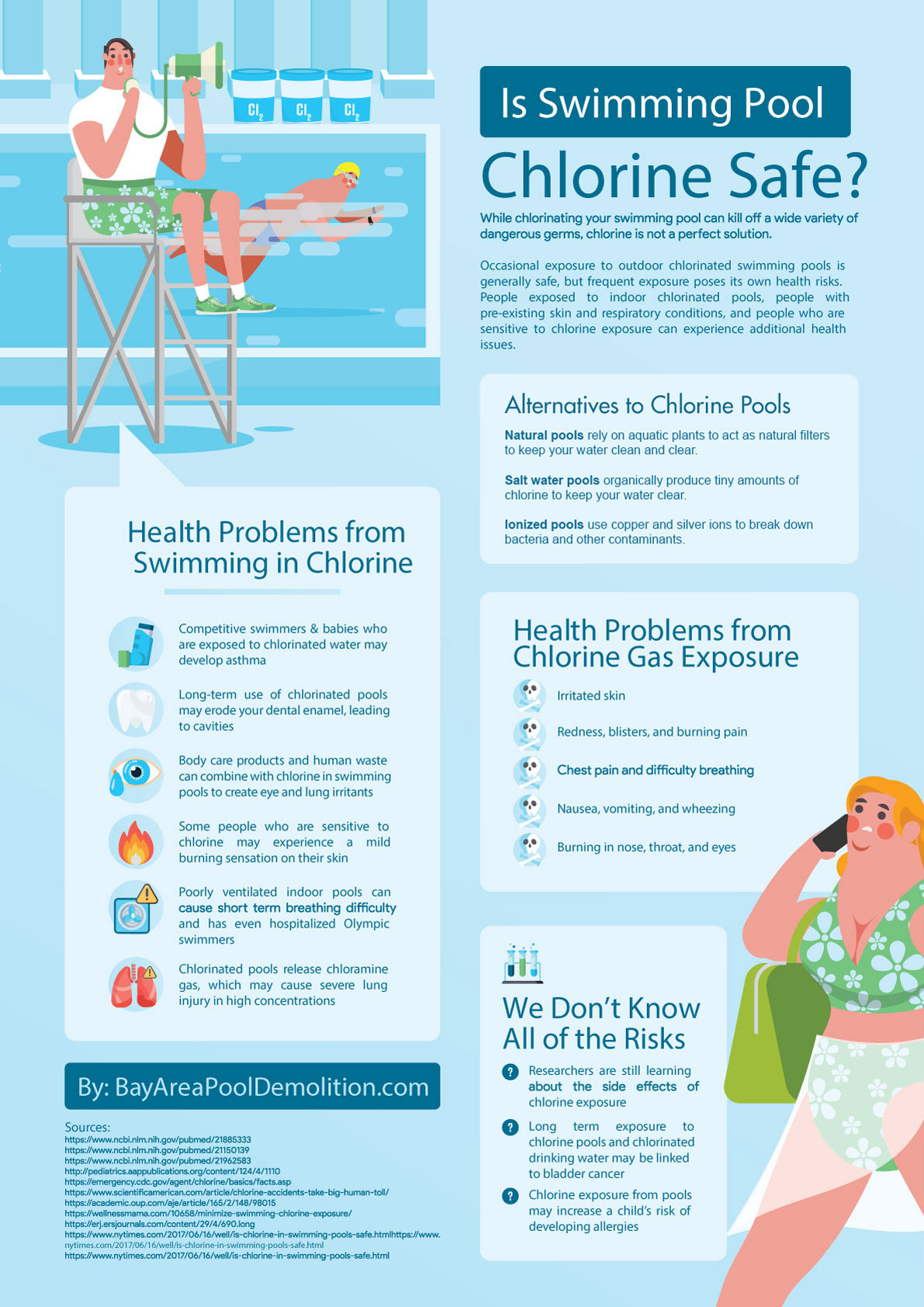
Share this Image On Your Site
Please include attribution to Bay Area Pool Demolition with this graphic.
While chlorinating your swimming pool can kill off a wide variety of dangerous germs, chlorine is not a perfect solution.
Occasional exposure to outdoor chlorinated swimming pools is generally safe, but frequent exposure poses its own health risks. People exposed to indoor chlorinated pools, people with pre-existing skin and respiratory conditions, and people who are sensitive to chlorine exposure can experience additional health issues.
Health Problems from Swimming in Chlorine
- Competitive swimmers & babies who are exposed to chlorinated water may develop asthma
- Long-term use of chlorinated pools may erode your dental enamel, leading to cavities
- Body care products and human waste can combine with chlorine in swimming pools to create eye and lung irritants
- Some people who are sensitive to chlorine may experience a mild burning sensation on their skin
- Poorly ventilated indoor pools can cause short term breathing difficulty and has even hospitalized Olympic swimmers
- Chlorinated pools release chloramine gas, which may cause severe lung injury in high concentrations
Alternatives to Chlorine Pools
- Natural pools rely on a aquatic plants to act as natural filters to keep you water clean and clear.
- Salt water pools organically produce tiny amounts of chlorine to keep your water clear.
- Ionized pools use copper and silver ions to brake down bacteria and other contaminants.
Health Problems from Chlorine Gas Exposure
- Irritated skin
- Redness, blisters, and burning pain
- Chest pain and difficulty breathing
- Nausea, vomiting, and wheezing
- Burning in nose, throat, and eyes
We Don’t Know All of the Risks
- Researchers are still learning about the side effects of chlorine exposure
- Long term exposure to chlorine pools and chlorinated drinking water may be linked to bladder cancer
- Chlorine exposure from pools may increase a child’s risk of developing allergies
By: BayAreaPoolDemolition.com

Leave A Comment